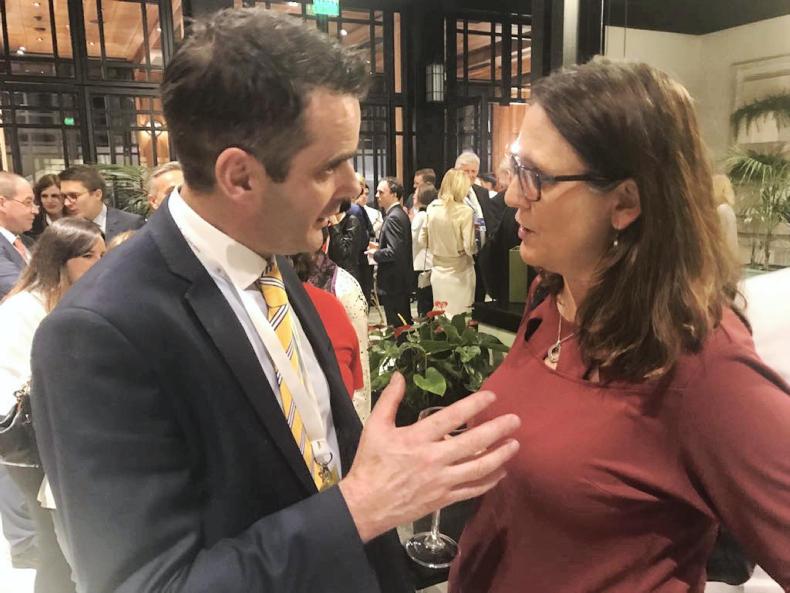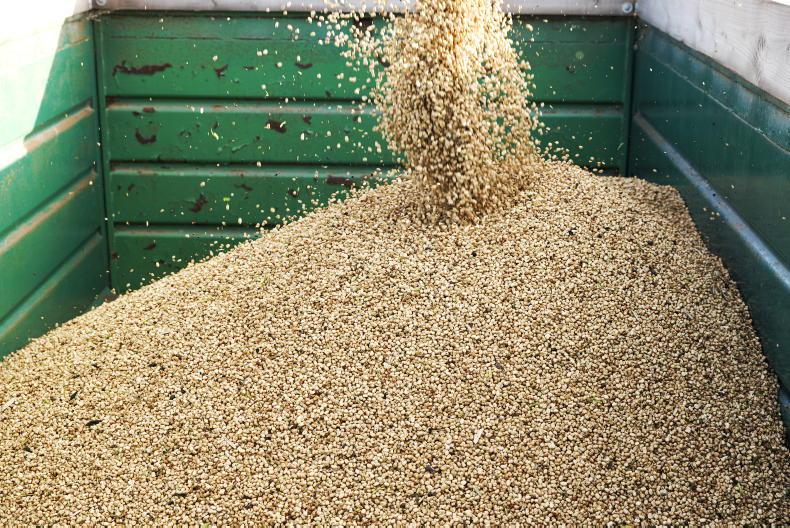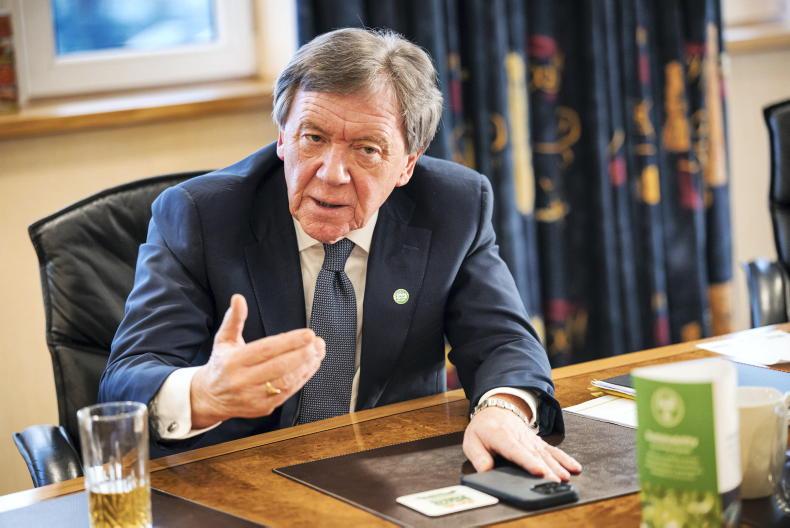The news in Thursday’s Irish Farmers Journal on the €100m was an overdue but welcome piece of good news for farmers. Of course, it isn’t a bonus or windfall – it merely will partially compensate farmers for losses incurred because of market disruption caused by Brexit.
A good news story is rare enough for Irish farmers but bad news never seems far away. At the start of the week, reports from South America suggested that the long-running Mercosur trade negotiations were gathering momentum, with a trade deal between the two blocs possible in coming weeks.
This created alarm among farm organisations and European Commissioner for Agriculture Phil Hogan was blunt in his dismissal of the prospect of a deal.
What is Mercosur?
Mercosur is the umbrella name for a group of South American countries including Brazil, Argentina, Uruguay, Paraguay and Venezuela, who have been suspended since 2016.
It was established in the early 1990s, loosely modelled on the then EEC and while achieving growth in trade between themselves, it remains a loose federation and never achieved the same unitary purpose that the EU currently does.
Often disagreement between members of Mercosur can be as great as the difference with those they are negotiating with, which is largely why a deal with the EU has never been concluded despite negotiations running since 1999.
Pros and cons of a deal
There is broad support across the EU for a trade deal with Mercosur, with the auto and pharmaceutical industries along with financial services especially benefiting. It would also be fine for much of agriculture with even some opportunities for the dairy sector.
However, it would be a disaster for beef producers as beef access to the EU is the key demand from the South American side.
The Mercosur members are all in the top five net exporters of beef in the world and currently supply over three-quarters of all beef imported into the EU.

European Commissioner for Trade Cecelia Malmstrom (right) with Commissioner for Agriculture Phil Hogan (left) at WTO Ministerial Conference in Buenos Aires late in 2017.
Long-running negotiation
A deal was close in late 2017, with the EU understood to have been willing to give access for 99,000t of tariff-free access for beef, though this was never formally offered.
This fell a long way short of Mercosur expectations, although other issues such as access for the auto industry and recognition of EU PGIs caused the breakdown at that time.
Since then, there has been a feeling in the EU that Mercosur hasn’t progressed on these areas and if anything backtracked on the December 2017 position.
South American politics
The election of President Bolsonaro in Brazil in October last year adds a further dimension to the negotiations. He was originally in the President Trump style of being protectionist as opposed to free-trade inclined and this was a further impediment to a deal taking place. However, recent reports suggest that he is more amenable to trade negotiations with the EU and in this he is very much encouraged by his Mercosur partners ahead of Brazil assuming the presidency of Mercosur later this year.
Climate change
A trade deal with Mercosur now, however, presents a considerable dilemma for the EU as acceptance and participation in the Paris climate accord is a basic requirement for the EU making trade deals with countries around the world.
President Bolsonaro is opposed to Paris and is closely aligned with President Trump’s thinking on climate change.
Therefore, it is inconceivable that the EU could make a trade deal with Mercosur in these circumstances but this week’s reports are a timely reminder to Irish farmers that the threat of a deal continues.
The news in Thursday’s Irish Farmers Journal on the €100m was an overdue but welcome piece of good news for farmers. Of course, it isn’t a bonus or windfall – it merely will partially compensate farmers for losses incurred because of market disruption caused by Brexit.
A good news story is rare enough for Irish farmers but bad news never seems far away. At the start of the week, reports from South America suggested that the long-running Mercosur trade negotiations were gathering momentum, with a trade deal between the two blocs possible in coming weeks.
This created alarm among farm organisations and European Commissioner for Agriculture Phil Hogan was blunt in his dismissal of the prospect of a deal.
What is Mercosur?
Mercosur is the umbrella name for a group of South American countries including Brazil, Argentina, Uruguay, Paraguay and Venezuela, who have been suspended since 2016.
It was established in the early 1990s, loosely modelled on the then EEC and while achieving growth in trade between themselves, it remains a loose federation and never achieved the same unitary purpose that the EU currently does.
Often disagreement between members of Mercosur can be as great as the difference with those they are negotiating with, which is largely why a deal with the EU has never been concluded despite negotiations running since 1999.
Pros and cons of a deal
There is broad support across the EU for a trade deal with Mercosur, with the auto and pharmaceutical industries along with financial services especially benefiting. It would also be fine for much of agriculture with even some opportunities for the dairy sector.
However, it would be a disaster for beef producers as beef access to the EU is the key demand from the South American side.
The Mercosur members are all in the top five net exporters of beef in the world and currently supply over three-quarters of all beef imported into the EU.

European Commissioner for Trade Cecelia Malmstrom (right) with Commissioner for Agriculture Phil Hogan (left) at WTO Ministerial Conference in Buenos Aires late in 2017.
Long-running negotiation
A deal was close in late 2017, with the EU understood to have been willing to give access for 99,000t of tariff-free access for beef, though this was never formally offered.
This fell a long way short of Mercosur expectations, although other issues such as access for the auto industry and recognition of EU PGIs caused the breakdown at that time.
Since then, there has been a feeling in the EU that Mercosur hasn’t progressed on these areas and if anything backtracked on the December 2017 position.
South American politics
The election of President Bolsonaro in Brazil in October last year adds a further dimension to the negotiations. He was originally in the President Trump style of being protectionist as opposed to free-trade inclined and this was a further impediment to a deal taking place. However, recent reports suggest that he is more amenable to trade negotiations with the EU and in this he is very much encouraged by his Mercosur partners ahead of Brazil assuming the presidency of Mercosur later this year.
Climate change
A trade deal with Mercosur now, however, presents a considerable dilemma for the EU as acceptance and participation in the Paris climate accord is a basic requirement for the EU making trade deals with countries around the world.
President Bolsonaro is opposed to Paris and is closely aligned with President Trump’s thinking on climate change.
Therefore, it is inconceivable that the EU could make a trade deal with Mercosur in these circumstances but this week’s reports are a timely reminder to Irish farmers that the threat of a deal continues.










SHARING OPTIONS